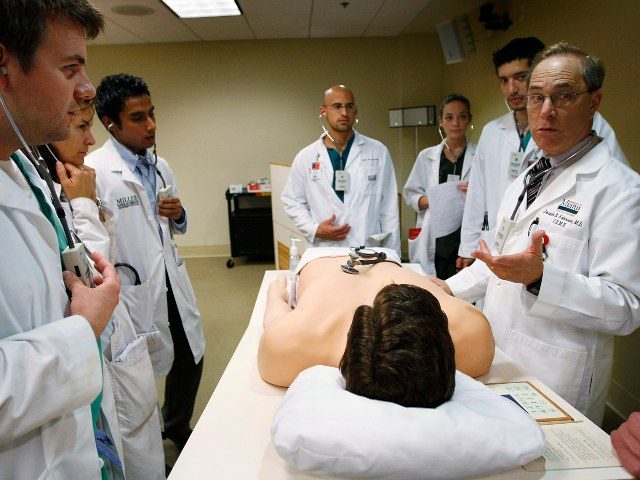Former University of Pennsylvania Medical School Associate Dean Stanley Goldfarb published a column in the Wall Street Journal last week which made the case that medical schools are more focused on “social justice” than they are on treating illnesses.
Writing for in the Wall Street Journal, former University of Pennsylvania Medical School Dean Stanley Goldfarb argued that the social justice frenzy that has infected American undergraduate programs is trickling into medical schools. For example, Goldfarb claims that he was once chastised in his role as a dean for not instituting a course at the medical school on climate change.
Goldfarb claims that the American approach to medical education was attacked in the 20th century by progressive sociologists that believed a radical change in approach was needed because there hadn’t yet been breakthroughs in major illnesses.
The traditional American model first came under attack by progressive sociologists of the 1960s and ’70s, who condemned medicine as a failing enterprise because increased spending hadn’t led to breakthroughs in cancer treatment and other fields. The influential critic Ivan Illich called the medical industry an instrument of “pain, sickness, and death,” and sought to reorder the field toward an egalitarian social purpose. These ideas were long kept out of the mainstream of medical education, but the tide of recent political culture has brought them in.
Goldfarb expressed concern that many administrators in medical schools do not have degrees in medicine. Rather, medical school administrators are often only equipped with master’s degrees in education, programs which are steeped in “social justice” politics.
As concerns about social justice have taken over undergraduate education, graduate schools have raced to develop curricula that will steep future educators in the same ideology. Today a master’s degree in education is often what it takes to qualify for key administrative roles on medical-school faculties. The zeitgeist of sociology and social work have become the driving force in medical education. The goal of today’s educators is to produce legions of primary care physicians who engage in what is termed “population health.”
Goldfarb has a grim view of the future of medical school with social justice administrators in charge.
Where will all this lead? Medical school bureaucracies have become bloated, as they have in every other sphere of education. Curricula will increasingly focus on climate change, social inequities, gun violence, bias and other progressive causes only tangentially related to treating illness. And so will many of your doctors in coming years.
Breitbart News will continue to report on the negative influence of social justice on education.

COMMENTS
Please let us know if you're having issues with commenting.